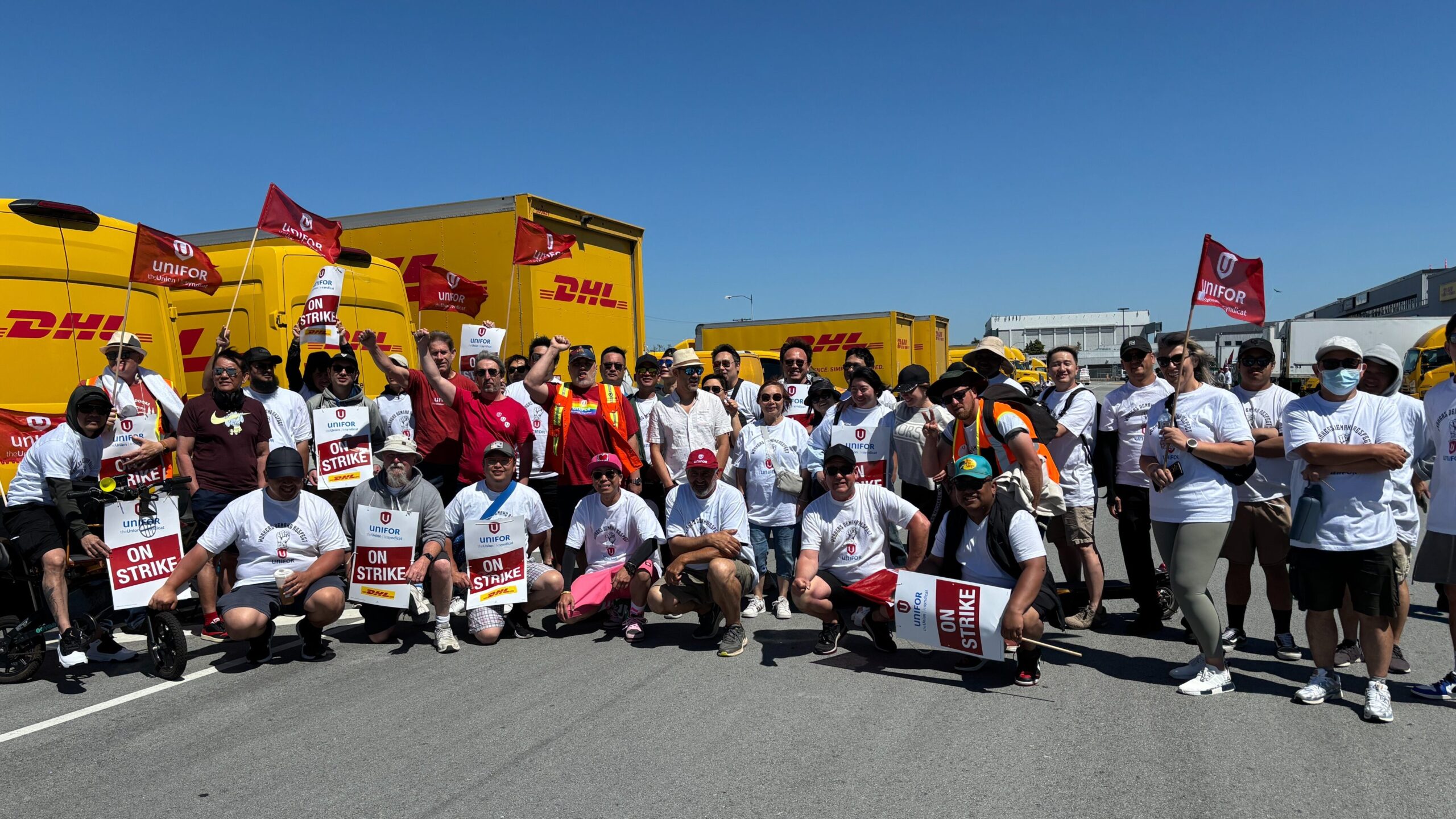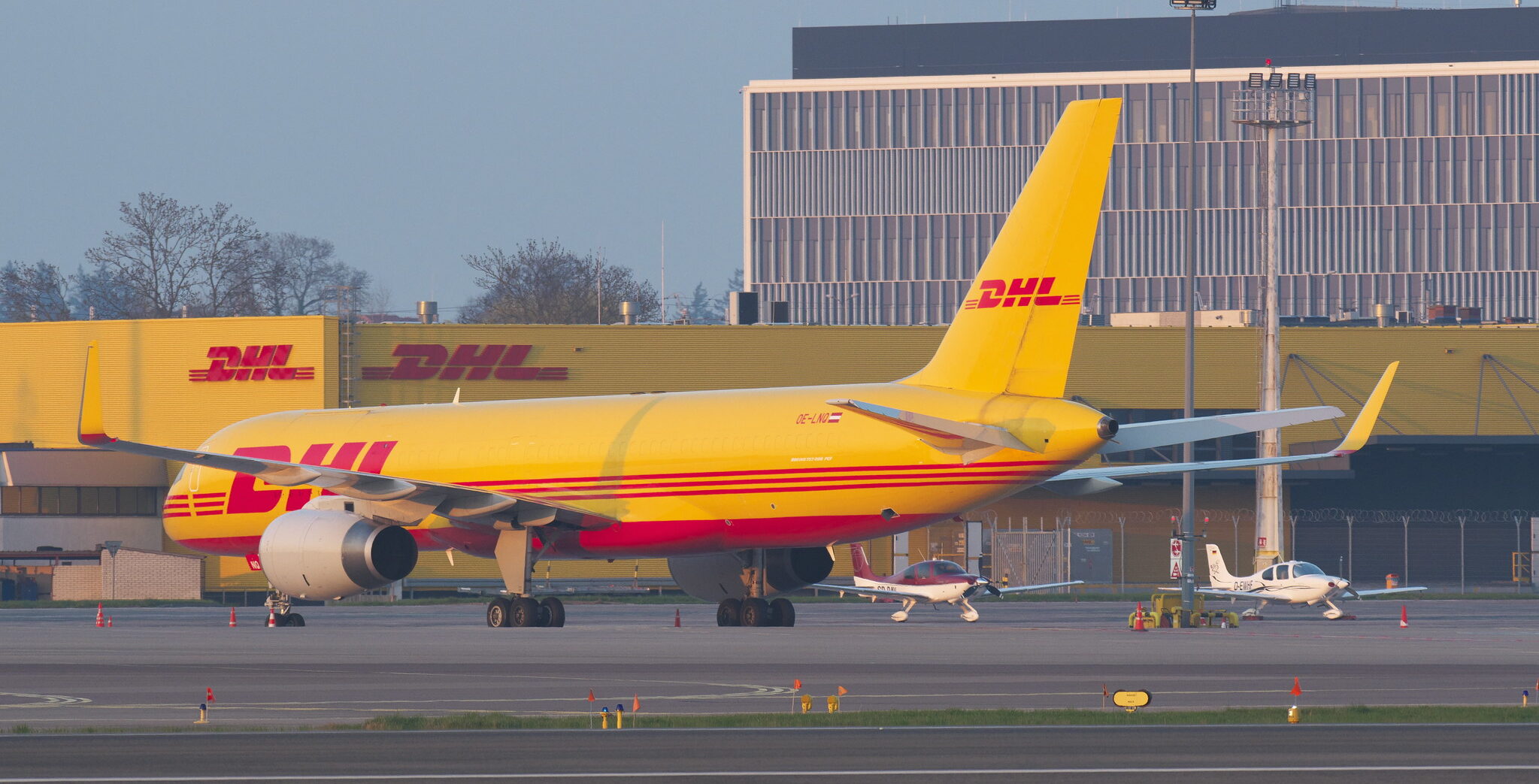Since June 8, 2,100 drivers, couriers and warehouse workers at DHL Express, represented by Unifor, have been on strike in retaliation of being locked out at midnight that same day. Workers are protesting against the company’s attempts to force them to drive up to 100 km to get on their routes, for clean and secure washrooms, and better wages, among other demands.
On June 13, Unifor’s bargaining committee representing the DHL workers met with DHL Express Canada CEO Geoff Walsh, who informed them of the company’s intention to suspend the import of international packages by June 16 if a tentative agreement were not reached. He also told them that the company would shut down all operations in the country on June 19, one day before new federal anti-scab legislation takes effect.
Bruce Daniel, a Halifax DHL delivery driver, provided The North Star with some context: “All during COVID, because people were staying home and ordering all their stuff online, DHL recognized there was a huge influx of business. They were making money hand over fist,” he explained.
“They kept calling us heroes and saying that they were so proud to have us in there every day. Then, when volumes dropped back to pre-Covid levels, they came to us and said, ‘‘you've had it too good for too long. It’s time for you to give some of that back.’ Our point of view was: ‘You never gave it to us to begin with, so we can’t give back what we don't have.’”

Morale still high on Halifax picket line
Daniel told The North Star that “we’ve been out ever since our first picket was set up on [Monday, June 9] and we've been here twelve hours a day, every day, all week.”
He added that morale is high, saying: “we all recognize the issues that we’ve got coming up. The hourlies, they're gonna get their raise, they know that, but they also know that with that raise they're also trying to get the owner operators to take less. They realize that we're fighting for them as much as they’re fighting for us. So, we’re in good shape, we’re backing each other up, and we’ll be here as long as we need to be.” He says that the union has “outlined what they’re fighting for, they’ll accept nothing less, and neither will we.”
If other workers want to show its solidarity, Daniel believes that the most important thing is to use other international companies for shipping, but also to oppose the use of scabs and third-party labor, and that people can “just come by and wave and beep your horn and let us know that you know that we’re here, you care, and you’re behind us.”

Solidarity with Canada Post workers
DHL’s strike and the ensuing lockout follows soon after CUPW workers resumed negotiations with Canada Post. Their demands are similar to those of DHL’s workers, such as safer working conditions and wage increases to keep up with inflation. The postal workers and their union have refused to work overtime, as a continuation of their fight which took the form of a strike in late 2024. The 2024 strike was suspended when the Canada Industrial Relations Board (CIRB) forced them back to work in December.
Daniel told us that Canada Post workers are “experiencing some of the same issues we’re having. The corporations want to increase our workload without increasing our compensation, and in a world where double-digit inflation and cost of living [are skyrocketing], we have to move forward. The money keeps flowing up and never flows down to the people that are creating it.”
Daniel told The North Star that the strike is not just about wages.
“It’s about the respect in the workplace. It’s about acknowledging that we are there every day […] working our blood, sweat and tears, and right now we’re not getting recognized for it. That's all we’re asking for, is that the respect is given to us that we earn and expect,” he said. “If they want us to give all, they have to give all back.”


